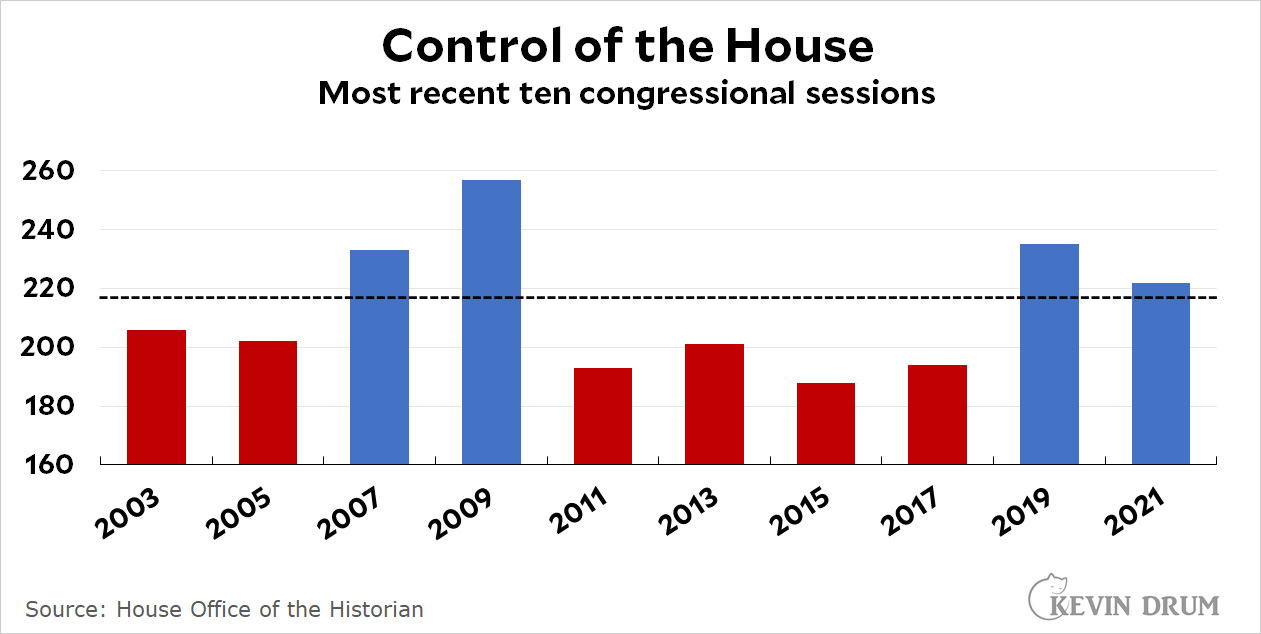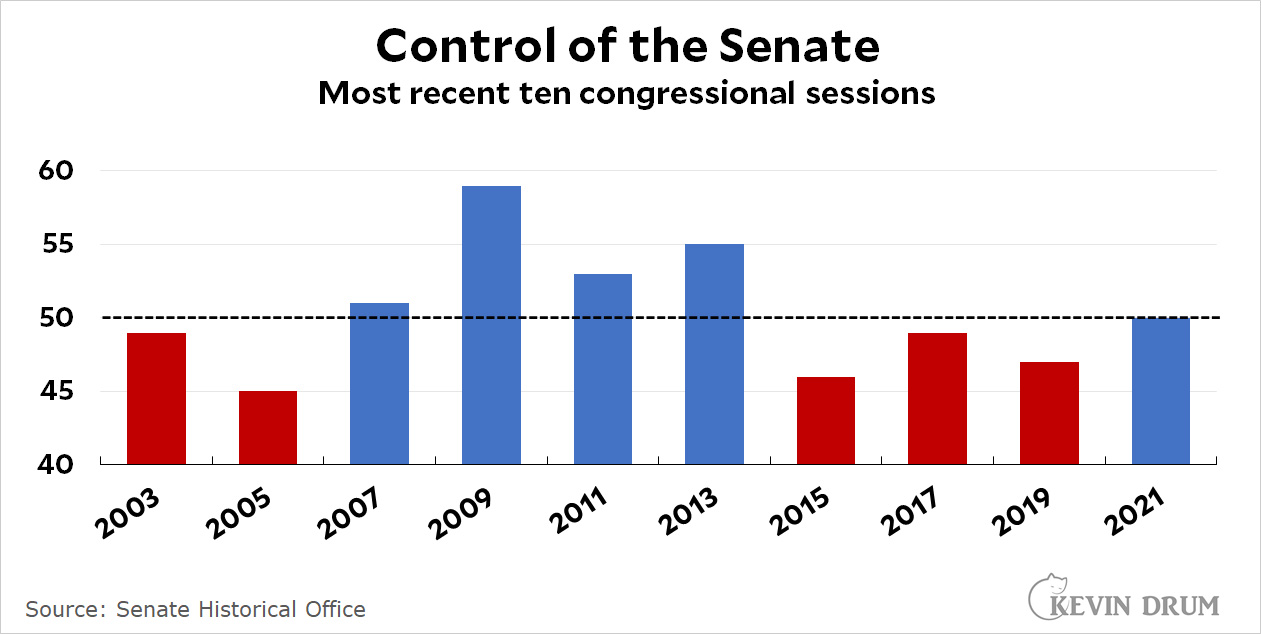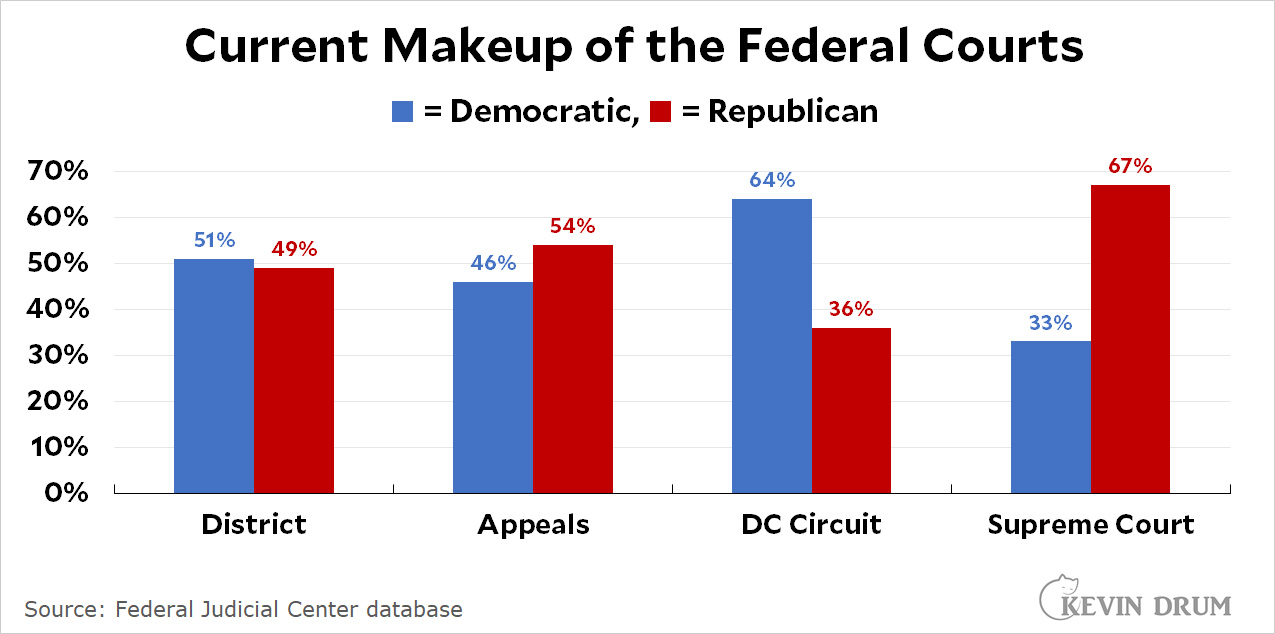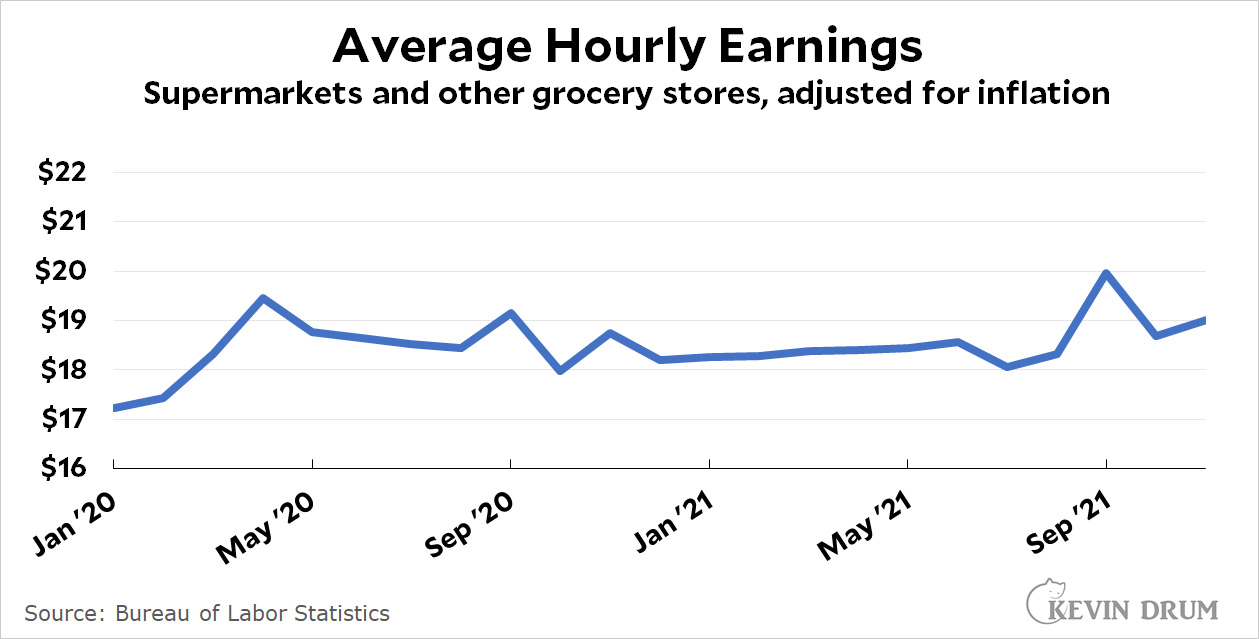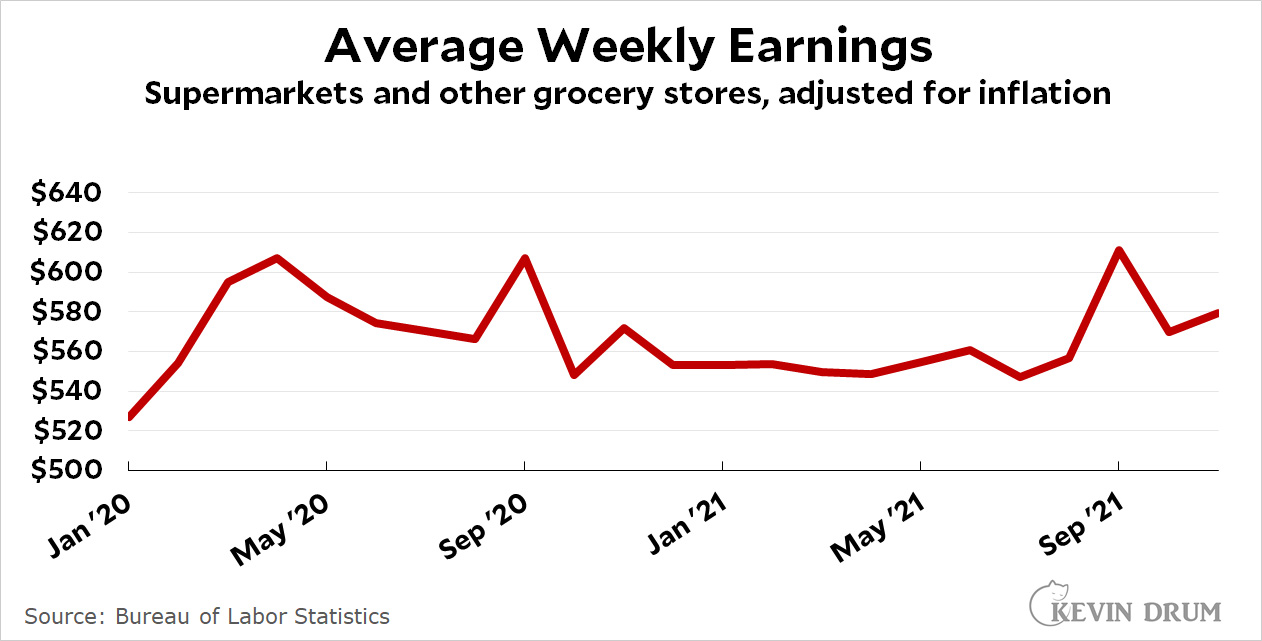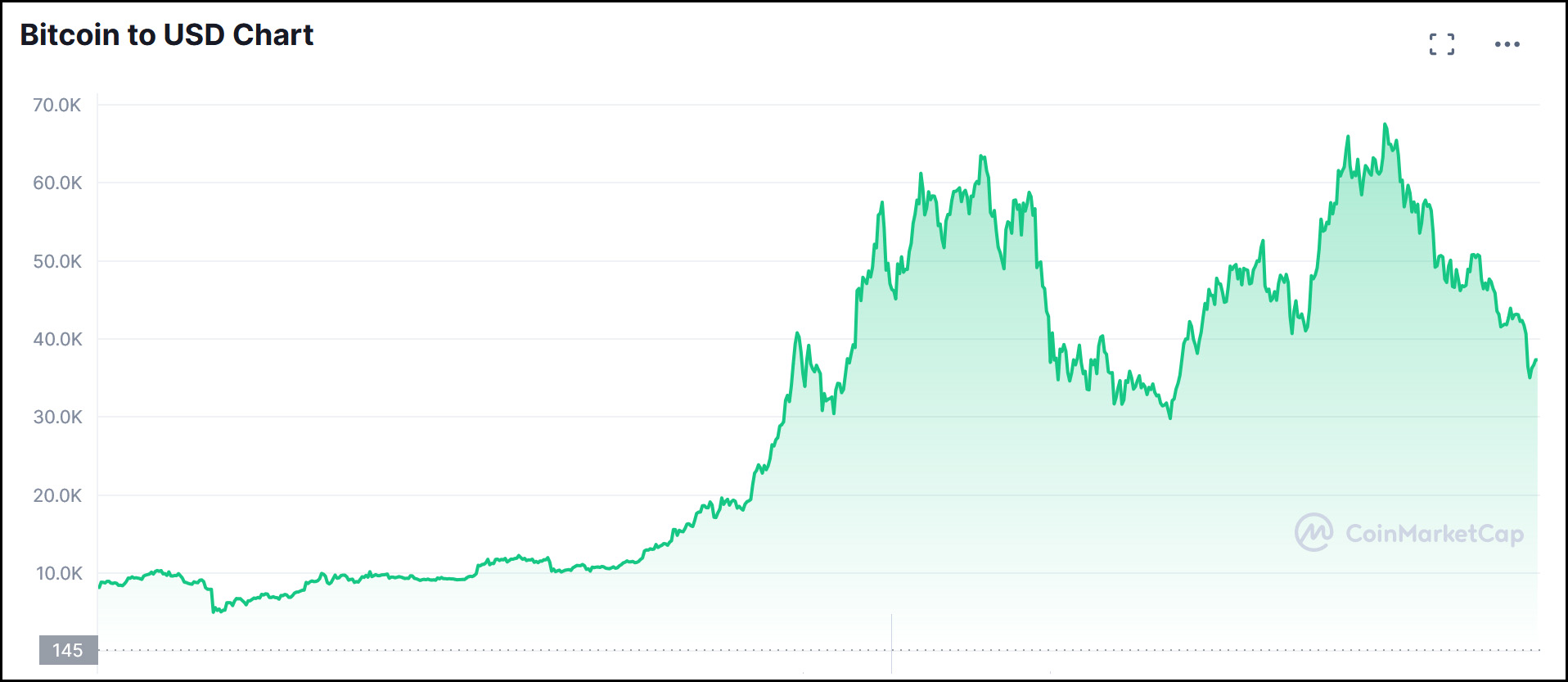Trucks are taking over American roads, fueled by a rise in pandemic online shopping and disruptions to global supply chains.
Along the way they’re chewing up pavement, adding to congestion and infuriating residents, who must contend with 18-wheelers and delivery trucks as soon as they pull out of their driveways. They’re also causing headaches for state and local governments that face multibillion-dollar bills to finance road upkeep and expansions.
....Truck mileage—tractor trailers and delivery trucks combined—on all roads hit a record of nearly 300 billion miles in the 12 months ended September 2021, roughly 2% above the same period in 2019, before the start of the pandemic, according to data from FTR Transportation Intelligence, a freight forecasting firm.
A month ago every newspaper was full of stories about shortages of truck drivers. Now we're complaining about too many trucks.
Which is it? Can we please get our story straight?


